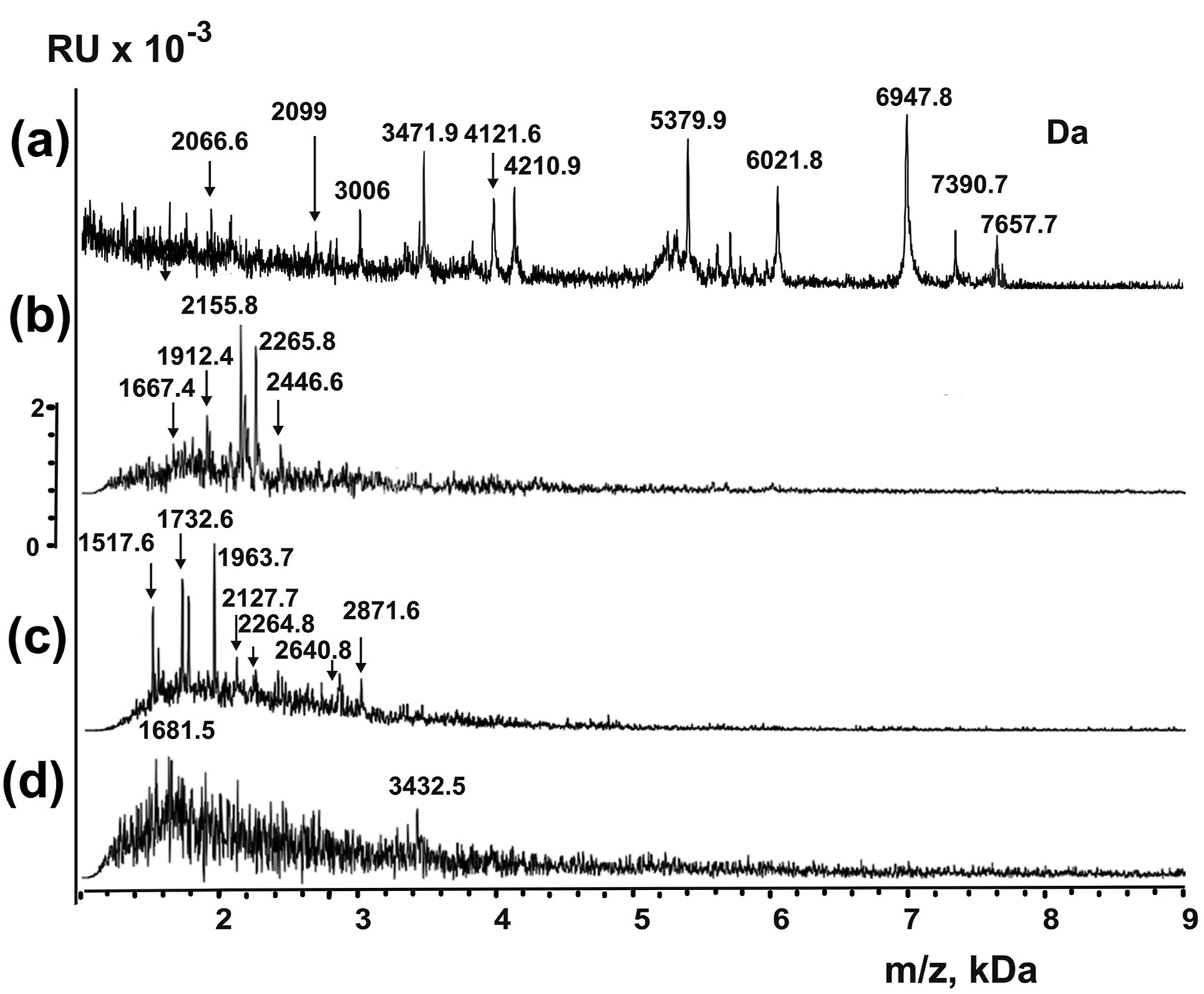Exosomal Peptidomics Detection Service
Exosomal Peptidomics Detection Service utilizes high-resolution mass spectrometry to systematically identify, quantify, and functionally analyze naturally occurring small peptides within exosomes. Exosomal peptidomics focuses on analyzing bioactive peptides inherently present in exosomes, which may originate from protein degradation, processing, or signaling pathways, and possess unique biological activities and regulatory functions.
As nanoscale vesicles secreted by cells, exosomes can stably carry various biomolecules into body fluids such as blood, urine, and cerebrospinal fluid. The peptide content within exosomes may reflect the pathological status and metabolic dynamics of the parent cells, offering significant value for early disease diagnosis, biomarker discovery, and novel drug target identification.
Leveraging advanced mass spectrometry platforms, MtoZ Biolabs provides Exosomal Peptidomics Detection Service to comprehensively detect the types, sequences, and abundances of peptides in exosomes, while analyzing their potential biological functions. This service aims to unveil functional peptides within exosomes, providing a new molecular basis for disease biomarker discovery, signaling mechanism elucidation, and therapeutic development.
Analysis Workflow

He B. et al. Proteomics Clinical Applications. 2022.
1. Sample Preparation and Exosome Isolation
Select appropriate methods to isolate high-purity exosomes based on project needs, followed by quality validation of the isolated exosomes.
2. Exosomal Peptide Extraction
Lyse exosomes using non-denaturing methods and remove high-molecular-weight proteins through ultrafiltration, size-exclusion chromatography (SEC), and other enrichment strategies to concentrate small peptides.
3. High-Resolution Mass Spectrometry Analysis
Perform peptide analysis using nano-liquid chromatography (nano-LC) coupled with high-resolution tandem mass spectrometry (MS/MS) to ensure sensitive and accurate detection.
4. Data Analysis and Report
Apply specialized algorithms and databases to perform peptide sequence identification, origin annotation, post-translational modification (PTM) detection, and abundance quantification. Conduct bioinformatics analysis and deliver a comprehensive report with detailed results.
Applications
Exosomal Peptidomics Detection Service can be applied in the following areas:
Disease Biomarker Discovery
Systematically screen disease-associated specific exosomal peptides to support early diagnosis and prognosis evaluation of various diseases.
Novel Bioactive Peptide Discovery
Identify exosomal peptides with potential anti-tumor, immunomodulatory, anti-inflammatory, and antimicrobial functions, facilitating the development of novel therapeutic targets and drug discovery.
Mechanistic Studies
Uncover the roles of exosomal peptides in intercellular communication, signal transduction, inflammatory responses, and metabolic regulation.
Precision Medicine Support
Analyze differences in exosomal peptidomes among various disease states or patient groups to enable personalized diagnosis, molecular subtyping, and targeted therapy development.
Services at MtoZ Biolabs
Based on the advanced mass spectrometry platform, MtoZ Biolabs' Exosomal Peptidomics Detection Service can perform high-throughput and high-sensitivity analysis of exosomal peptides, and provide professional bioinformatics support to systematically analyze peptide functions, pathways, and networks to facilitate biological discoveries. MtoZ Biolabs, an integrated Chromatography and Mass Spectrometry (MS) Services Provider, provides advanced proteomics, metabolomics, and biopharmaceutical analysis services to researchers in biochemistry, biotechnology, and biopharmaceutical fields. Our ultimate aim is to provide more rapid, high-throughput, and cost-effective analysis, with exceptional data quality and minimal sample consumption.
FAQ
Q. How to Ensure that the Detected Peptides are Truly Derived from Exosomes rather than Contaminants or Degradation Products?
MtoZ Biolabs follows a rigorous, multi-step standardized workflow to ensure the authenticity and purity of exosome-derived peptides. First, exosomes are isolated using high-purity methods such as ultracentrifugation, density gradient centrifugation, or size exclusion chromatography (SEC), and are comprehensively characterized through TEM, NTA, and Western blot analysis (targeting markers such as CD9, CD63, and CD81) to avoid contamination from microvesicles or cellular debris. Second, peptide extraction is performed using non-denaturing lysis buffers, combined with ultrafiltration and molecular weight-based enrichment, to specifically collect endogenous small peptides while avoiding artifacts generated from protein degradation. These stringent steps ensure that all analyzed peptides are bona fide components encapsulated within exosomes.
Q. Do you Support Differential Peptide Screening and Functional Annotation, and can these Peptides be Applied as Disease Biomarkers?
Yes, we provide high-sensitivity identification of endogenous peptides and fully support differential peptide screening and quantitative analysis between disease and control groups. Our reports include fold change, p-values, and statistical significance analyses. Additionally, we perform functional annotation and pathway enrichment using databases such as GO, KEGG, and Reactome, identifying key disease-related peptides. Based on these results, we generate a list of potential disease biomarkers, accompanied by functional validation recommendations, to facilitate biomarker development and clinical application.
Deliverables
1. Comprehensive Experimental Details
2. Materials, Instruments, and Methods
3. Total Ion Chromatogram & Quality Control Assessment (project-dependent)
4. Data Analysis, Preprocessing, and Estimation (project-dependent)
5. Bioinformatics Analysis
6. Raw Data Files
Case Study
This study employed exosomal peptidomics detection technologies to systematically analyze the endogenous peptides and small molecular proteins contained within equine milk-derived exosomes. The results revealed that these exosomes are enriched with peptides derived from functional proteins, including casein, lactoferrin, and immunoglobulins, exhibiting potential antimicrobial, immunomodulatory, and nutritional bioactivities. These findings suggest that equine milk-derived exosomes may participate in host immune regulation and defense mechanisms through the delivery of bioactive peptides.

Sedykh S E. et al. International Dairy Journal. 2021.
How to order?







